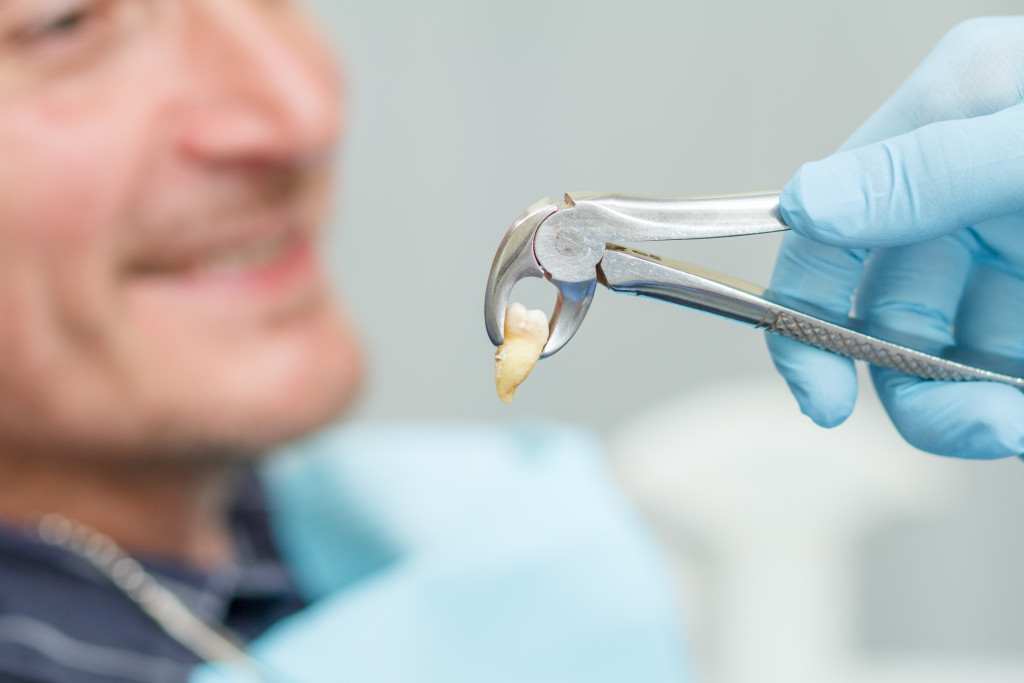- Choose the right dentist or oral surgeon for your tooth extraction.
- Manage pain after the procedure by taking over-the-counter medications and applying ice packs.
- Take care of yourself during the post-extraction healing period by avoiding physical activities and smoking.
- Avoid hard, chewy, and sticky foods following the extraction.
- Consider a tooth replacement to restore your smile.
If you’re faced with the unfortunate prospect of having a tooth extracted, it can be difficult to know how to prepare. Whether you’re undergoing a tooth extraction due to decay, wisdom tooth, or some other reason, there are several steps that you need to take to ensure that the process goes smoothly and recovery is as fast and comfortable as possible. Here are five tips on managing your upcoming tooth extraction.
1. Choose the Right Dentist or Oral Surgeon
When it comes time for a dental procedure such as tooth extraction, it’s important to ensure you find an experienced and qualified dentist or oral surgeon with whom you feel comfortable. Doing so will help minimize any issues during the extraction and ensure the highest quality of care. Before making your selection, you should spend time researching different dentists or oral surgeons to find one who is experienced and knowledgeable about tooth extraction procedures. Make sure to read reviews, ask questions, and carefully compare the qualifications of each dentist or oral surgeon before making your decision.
2. Manage Your Pain After The Procedure
Following a tooth extraction, it is common for some pain and swelling to occur in the area around the extracted tooth. To help reduce discomfort, you can take over-the-counter pain medication such as ibuprofen or acetaminophen every four to six hours as needed. Additionally, applying an ice pack directly on the affected area can help reduce any swelling while also numbing the area. However, if your discomfort is unmanageable or doesn’t subside after a few days, contact your dentist to discuss additional treatment options.
3. Take Care Of Yourself During the Post-Extraction Healing Process

You must take care of yourself during the post-extraction healing process. This means avoiding physical activities such as sports or exercise for at least two weeks and abstaining from smoking while taking any antibiotics prescribed by your dentist. Additionally, it’s important to gently rinse with salt water several times throughout the day to clear away any debris and bacteria left behind from the extraction procedure.
4. Avoid Eating Hard, Chewy or Sticky Foods After Extraction
While recovering from tooth extraction, avoiding hard, chewy, or sticky foods is essential. Doing so will help prevent further irritation to the extraction site and slow the healing process. It is best to stick to soft foods such as yogurt, applesauce, mashed potatoes, and soup that are easy to swallow and don’t require a lot of chewing. Additionally, you should drink plenty of fluids, such as water or juice, to stay hydrated and flush out any bacteria in your mouth.
5. Consider a Tooth Replacement
Once the healing process is complete, you may consider replacing your extracted tooth with a tooth implant. An implant works by placing an artificial root in the jawbone to replace the lost natural root. The artificial root is then topped with a custom-made crown that replicates the look of your original teeth. In addition to restoring your smile, a tooth implant can also help maintain the structure of your jawbone and prevent further bone loss. Other tooth replacement methods include bridges and dentures, which can help replace the missing tooth. Your dentist or oral surgeon can advise you on the best course of action for replacing your extracted tooth.
Commonly Asked Questions
What is the recovery process like after a tooth extraction?

The recovery process following a tooth extraction typically involves inflammation, swelling, and some discomfort. Usually, this resolves within two to three weeks if proper care is taken with limited physical activity during the healing period. Additionally, you should keep the extracted area clean and free of food debris or bacteria by gently rinsing your mouth with salt water about four to five times per day.
How long does it take for gum tissue to heal after an extraction?
It typically takes about seven days for your gums to heal after an extraction, although it can range from five to ten days depending on various factors such as your age, health, and the complexity of your procedure. If a dental implant is placed in place of your extracted tooth, recovery time may be longer due to jawbone healing.
Can you request anesthesia during an extraction?
Yes, anesthesia can be requested during an extraction. Usually, local anesthesia is used to numb the area around your tooth being extracted so that no pain is felt during the procedure. Additionally, your dentist or oral surgeon may use intravenous (IV) sedation if multiple teeth are extracted or if you have a higher pain tolerance.
What can I eat after an extraction?
Soft foods such as soups, yogurts, and mashed potatoes are usually recommended for the first few days following the procedure. Additionally, it’s important to stay away from carbonated beverages and avoid using a straw or spitting forcefully, as these behaviors can cause increased bleeding. After a few days of soft foods, solid foods may be slowly introduced depending on how comfortable you feel with them.
In Closing
Having a tooth extracted can be an unnerving experience. Still, it doesn’t have to be daunting if you take the necessary steps to prepare for the procedure and follow these tips for managing your recovery afterward. Make sure you research when selecting a qualified dental professional and discuss available options with them before starting the extraction process. These precautions will ensure that everything goes as smoothly as possible throughout the procedure and during your post-extraction recovery.






